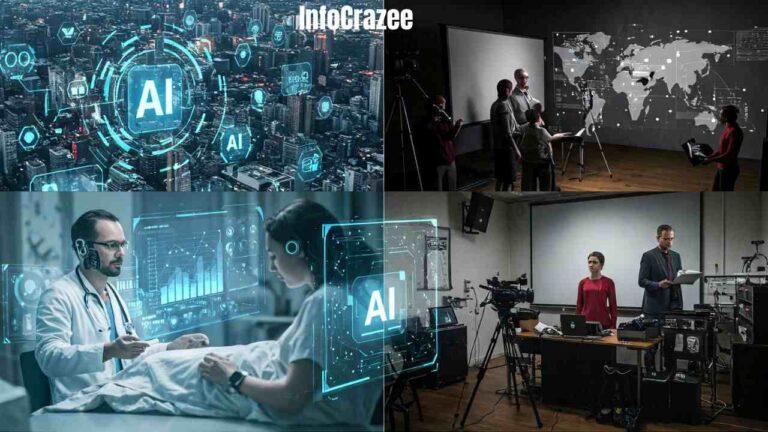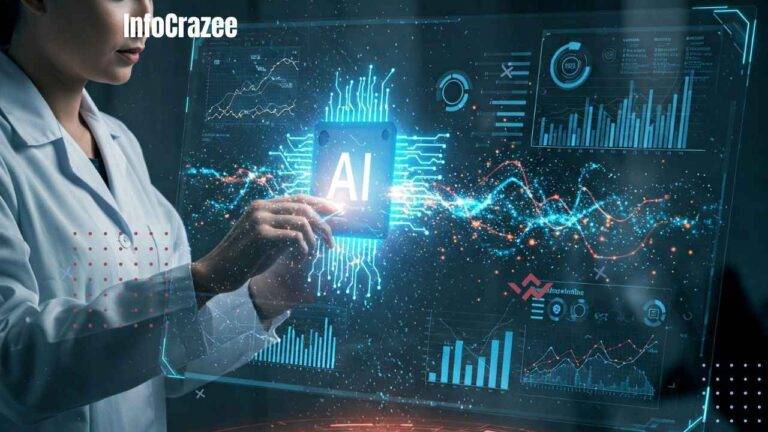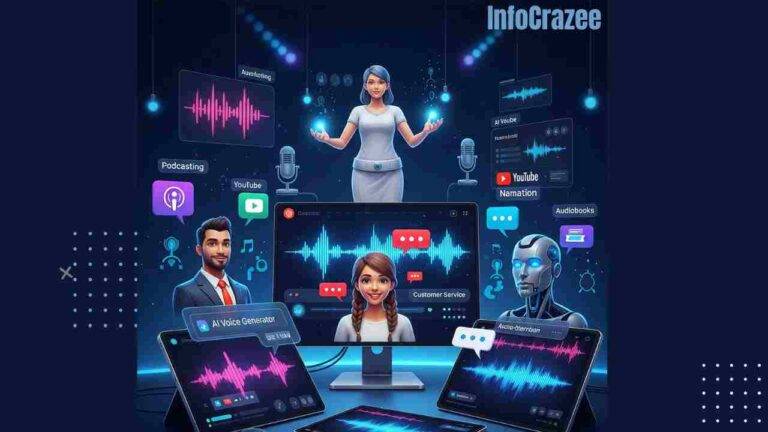The Impact of AI on Job Markets: How Technology Is Shaping the Future of Work
Technology is changing fast, and artificial intelligence (AI) is at the forefront of that revolution. You’ve probably heard a lot about AI in the news, but what does it really mean for your job or your future career? Will robots really replace us? Let’s break it down and figure out how AI is shaping the world of work.
1. What is AI and How Does It Affect Jobs?
At its core, AI refers to machines that can think, learn, and adapt. Unlike regular software that follows strict instructions, AI can analyze patterns, make decisions, and even improve over time.
For example, think about a customer service chatbot. It can help answer your questions 24/7, learning from past conversations to provide better responses. Over time, this AI might become so smart that it can handle complex queries just like a human agent would.
Now, AI is entering almost every industry — from retail to healthcare, from transportation to finance. While some people worry that AI will take over their jobs, others see it as an opportunity for more interesting, creative, and specialized roles.
2. Jobs AI Will Change (and Maybe Replace)
1. Repetitive, Routine Jobs
AI is excellent at handling tasks that are repetitive and don’t require much creativity. These could include things like:

- Data entry
- Basic customer service (via chatbots)
- Manufacturing line work
For example, in some factories, robots already do most of the assembly, which means fewer human workers are needed in those roles. But that doesn’t mean the future is bleak!
2. Jobs That Rely on Big Data
AI can process and analyze huge amounts of data way faster than any human could. This has huge implications for industries like:
- Healthcare (AI can analyze medical images or predict patient outcomes)
- Finance (AI can detect fraud by analyzing patterns in transactions)
Even though AI will take over the analysis part, there will still be plenty of demand for human experts who know how to interpret and act on that information.
3. Jobs AI Can’t Replace (At Least Not Anytime Soon)
Not everything is at risk of being replaced by robots. There are several roles that require empathy, creativity, and decision-making skills — things AI is still far from mastering.
1. Jobs That Require Human Connection
Jobs like therapists, teachers, nurses, and managers require emotional intelligence — something AI struggles with. AI can help in these fields (like recommending mental health resources or diagnosing diseases), but human care and understanding are irreplaceable.
2. Creative Roles
Designers, artists, writers, and musicians rely on creativity and the ability to produce something unique. While AI can help by suggesting ideas or automating tasks, it still lacks the human touch when it comes to innovation.
3. Complex Decision-Making
AI can analyze patterns and predict outcomes, but it’s not great at making complex decisions based on emotions, values, or unforeseen consequences. For example, a judge deciding a court case or a leader navigating a crisis is a role where human judgment is essential.
4. How AI Can Help Us in the Workplace
Even if AI is taking over some tasks, it’s also making life easier for many workers. Here’s how:
1. Reducing Time on Repetitive Tasks
AI can handle tasks like scheduling, organizing data, or even responding to basic customer inquiries. This means employees can focus on more creative, strategic, and high-value tasks. Imagine not having to spend hours inputting data or answering the same basic customer questions — that’s time you could spend working on more interesting projects.
2. Personalizing Learning and Training
In many workplaces, AI is helping to personalize training programs. By analyzing employees’ skills, AI can create custom training plans that help workers improve faster and more effectively.
3. Making Decisions Faster and Smarter
AI can quickly process large sets of data, which helps businesses make decisions faster. Whether it’s predicting trends, understanding consumer behavior, or analyzing market shifts, AI can give businesses a competitive edge.
5. Preparing for the Future: What You Can Do Now
So, what does this mean for your career? How can you adapt to a world that’s becoming more automated?
Here are a few tips:

- Focus on Skills AI Can’t Replicate: Emphasize soft skills like communication, creativity, and problem-solving. AI can’t replace these anytime soon.
- Learn to Work With AI: AI isn’t going away. If you’re in a field that AI is impacting, learn how to use it to your advantage. For example, learn how to work with data analysis tools or automation software.
- Stay Curious and Adaptable: The job market is changing fast, and being open to learning new things will keep you ahead of the curve. Take courses, attend workshops, or stay updated on tech developments in your field.
FAQs About AI and Jobs
Q1: Will AI take my job?
A: It depends. AI is likely to replace jobs that involve repetitive, predictable tasks. However, it’s also creating new jobs and enhancing existing roles. The key is to adapt by developing skills that complement AI, like creativity and emotional intelligence.
Q2: How can I make sure I stay relevant in the job market?
A: Focus on developing skills that AI can’t easily replicate, such as creativity, empathy, and strategic thinking. Stay updated on the latest tech trends in your field and learn how to work alongside AI tools.
Q3: Can AI help me in my current job?
A: Yes! AI can make your job easier by handling repetitive tasks, helping you make better decisions, and even offering personalized training. Look into how AI can be used in your field to enhance productivity.
AI is here to stay, and while it’s changing the job market, it’s also creating opportunities for those who are willing to adapt. Embrace the technology, and you might find that AI becomes a valuable teammate rather than a competitor.






